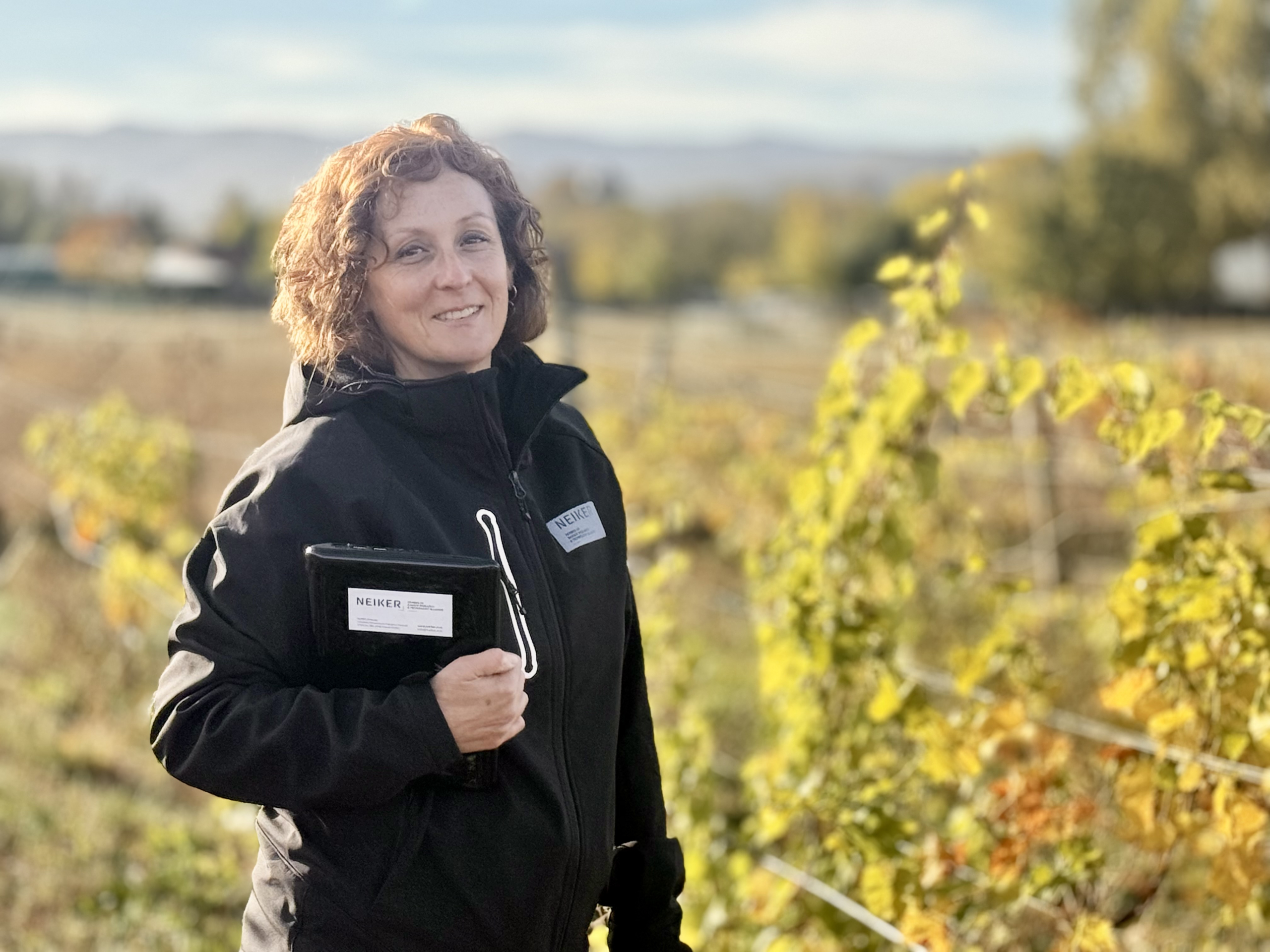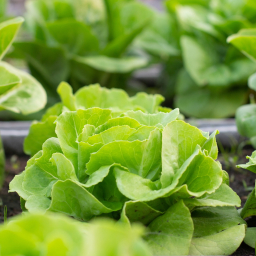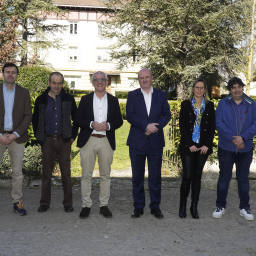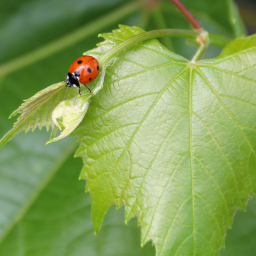NEW
Ana Díez: “Resistant grape varieties enable a reduction in pesticide use and progress towards sustainable viticulture.”
18 November 2025
Mildew, powdery mildew and botrytis are some of the most common and harmful diseases affecting grapevines, capable of causing significant losses in production and quality in vineyards. The European GRAPEBREED4IPM project has been launched to combat these diseases with minimal use of chemicals, promoting the development and adoption of grapevine varieties that are resistant to these pathologies. The NEIKER technology centre is participating by contributing its expertise in varietal characterisation and the assessment of biodiversity in vineyards, with the aim of moving towards more sustainable viticulture in line with the objectives of the European Green Deal, a challenge that, as Ana Díez explains, requires a combination of innovation, cooperation and knowledge transfer.
What is the main challenge that GRAPEBREED4IMP seeks to address in viticulture?
The project focuses on reducing dependence on chemical pesticides by developing and adopting varieties that are resistant to the most problematic diseases affecting vines, such as mildew, powdery mildew, black rot and botrytis. These varieties are adapted to local climate and soil conditions, enabling more efficient and sustainable production in both conventional and organic farming, and preparing vineyards to respond more resiliently to potential emerging threats.
How do resistant varieties contribute to reducing pesticide use?
Genetic improvement focused on disease resistance reduces the number of fungicide treatments, which translates into lower chemical use and makes vineyards more sustainable. In Europe, organic vineyards account for around 3% of agricultural land, and in 2019, 12.1% of vineyards in the European Union were managed under organic farming, mainly concentrated in Spain, France and Italy. Thanks to resistant varieties, wine companies can further reduce the use of fungicides, increasing the efficiency and sustainability of production.
What will NEIKER’s contribution to the project be, and what benefits does it expect to gain from its participation?
NEIKER will provide local support in the selection of improved plant material, working alongside regional growers. This translates into the planting of resistant lines generated by the partner VCR, the Rauscedo (Italy) nursery cooperative, based on varieties of local interest.
Furthermore, we will participate in OSCAR, a participatory observatory created by INRAE (France’s National Research Institute for Agriculture, Food and Environment) and IFV (the French Vine and Wine Institute), which brings together production plots of resistant varieties. This collaborative work seeks to integrate varietal resistance and Integrated Pest Management (IPM), combining different sustainable control strategies.
Another key focus will be the evaluation of biodiversity in vineyards with resistant varieties under organic and conventional management. We will analyse the presence of arthropods and the microbiota on the berries to better understand the effects of these new varieties on the vineyard ecosystem.
You mention resistant varieties; what benefits do they bring to cultivation systems, both organic and conventional?
Resistant varieties offer advantages in both production systems. Even organic farming, which uses naturally derived products, relies to some extent on plant protection product treatments (or ‘pesticide treatments’). The development of resistant varieties allows this dependency to be reduced, lowering costs and improving the sustainability of the vineyards.
Moreover, the project includes the participation of FiBL, a European leader in organic agriculture, which ensures that the solutions developed are fully adapted to this sector. Altogether, GRAPEBREED4IPM contributes to the objectives of the European Green Deal, the 2030 Biodiversity Strategy, and the Farm to Fork initiative, promoting viticulture with a lower environmental impact and a more rational use of resources.
What economic impact is expected on the wine sector?
The reduction in the use of fungicides is expected to reach 10% by the end of the project, with a long-term target of 25%. This represents a direct saving in costs and allows for better organisation of work on the holdings (or ‘farms’), as the time previously dedicated to chemical treatments can be invested in other tasks, increasing efficiency and improving the living conditions of the farming families.
How are the stakeholders across the value chain involved?
GRAPEBREED4IPM follows a multi-actor and participatory approach, working jointly with grape growers, advisors, and other actors in the value chain. This allows the project results to be developed in a practical manner and ensures their adoption in the field.
In this vein, expert forums help to identify limitations and potential solutions, generating knowledge that local actors use to design roadmaps adapted to the cultivation, marketing, and deployment of the new varieties, ensuring that the resistant varieties are implemented effectively.
What tools and guidelines will be developed to foster the implementation of the resistant varieties?
Decision support tools, plant health management guides, and planting guidelines adapted to each growing area will be created. These tools enable grape growers to understand the concepts of durable resistance and Integrated Pest Management, ensuring they can apply them practically in their vineyards.
Beyond genetic improvement, how do you ensure that the knowledge is useful and adopted by the production sector?
Demonstration vineyards will be established in different regions, where growers and advisors can evaluate the resistant varieties under real-world conditions.
In this respect, personalised training activities will be carried out to facilitate the understanding of the advantages of these varieties and help select the most suitable option according to local conditions. Furthermore, the wine quality attributes will be analysed, linking varietal innovation with production and the market, so that the grape growers’ decisions are well-founded.
Finally, what dissemination and communication actions will be carried out to promote the initiative to the community?
The project will have a comprehensive communication strategy, which includes a regularly updated website, informational materials, technical publications, and a presence at more than 80 industry events at regional, national, and international levels.
In this way, we ensure that the knowledge generated in GRAPEBREED4IPM reaches all stakeholders and has a real impact on the transition towards a more sustainable and resilient viticulture in Europe.






